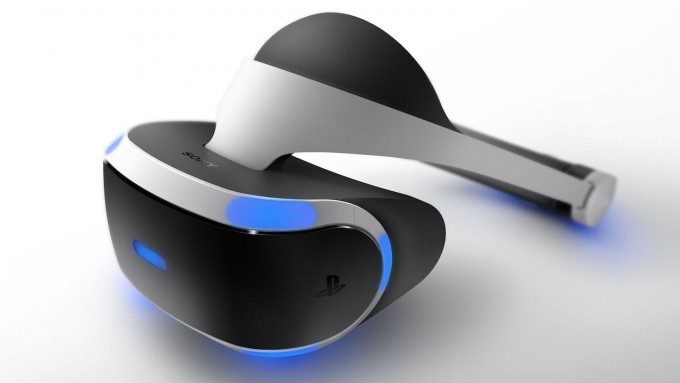Sony PlayStation VR
Pricing Power Play?
PlayStation VR (which will almost certainly get colloquially shortened to ‘PSVR’) is the only console-based virtual reality headset among the big three. And while you could make an argument that it isn’t ‘technically’ a competitor to the PC-based Rift and Vive, Sony could nab a wealth of would-be PC VR customers with a daring play:

If Sony can manage to price a PlayStation 4 + PlayStation VR bundle at the same price of the Vive headset by its lonesome ($800)—or better yet, undercut it—it would have a powerful argument for gamers who want VR but also want to keep an extra $1000 in their pockets by not having to invest in a VR-capable computer.
Sony does love bundles (it’s hard to even buy the PlayStation 4 by itself); with the PS4 currently priced at $350, that leaves only $450 worth of headroom before bumping into the price of the Vive. I think the optimal play for Sony would be to price PlayStation VR at $450 standalone and then give $50 ‘savings’ through a PS4 + PSVR bundle at $750, thereby providing an entire VR-capable package for less than the cost of the Vive headset alone.
Release Date
As for the PlayStation VR release date, Sony has only ever been as specific as Q2, which puts a PSVR launch as far out as the end of June, which would be up to nearly three months after the first shipments of the Rift and Vive. We expect to hear a specific PSVR release date at GDC 2016 and don’t expect it to deviate from Q2.
Final Design & Platform Integration

Sony revealed their VR headset prototype (codenamed ‘Project Morpheus’) back at GDC 2014. At GDC 2015 the company showed a new and improved prototype with better tracking, a better display, and some ergonomic refinements. They would soon rename the headset to PlayStation VR to codify it into an official product.

The GDC 2015 prototype is the same one we’ve seen from the company since that time, but we expect there to be some subtle design changes product which we could see this week for the final shipping product.
We hope to also learn more about how the headset will actually interact with the PlayStation 4. Will there be an in-VR menu to launch games (like Rift and Vive), or will players be expected to launch PSVR games through the PS4’s main menu, and then put on the headset? (We hope not!). Will there be any way for players to play their existing PS4 games in a virtual home-theater like Vive’s SteamVR Desktop Theater Mode? We’ll have to wait and see.
PlayStation VR Press Event
Sony is holding an invite-only PlayStation VR press event Tuesday afternoon/evening where we expect to learn about much of the above. We’ll have hands-on time with whatever Sony will be showing there, so be sure to check back.







